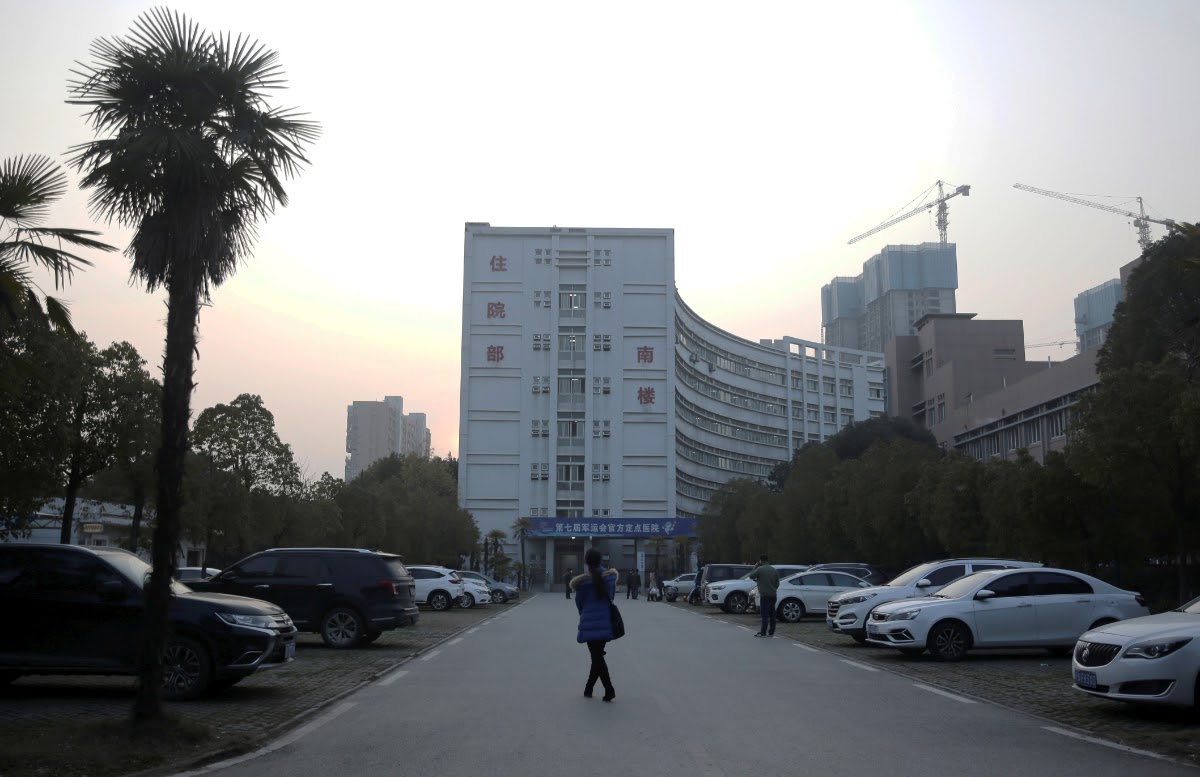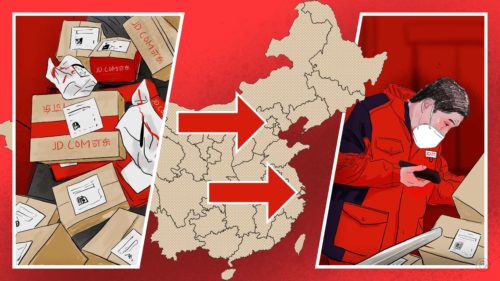Beijing calls study of Wuhan hospital traffic ‘outrageously absurd’
A new Harvard study raises questions about the timing of the outbreak of Covid-19 in Wuhan. The study is still awaiting peer review, however, China's efforts to discredit the researchers' work show how science has become politicized amidst a global pandemic.

Update: Several commentators with expertise in satellite imagery analysis have said the methodology of the Harvard study is deeply flawed. Nathan Ruser of the Australian Strategic Policy Institute, who specializes in analysis of satellite images in China, said that the data was noisy and the angles of the images led to buildings obstructing the view. Jeffrey Lewis, an expert in analyzing satellite imagery in North Korea, said that the paper “isn’t very convincing.”
Several people have also flagged that they have been unable to reproduce the claimed spike in Baidu searches for COVID-19-related symptoms, even after entering the same search term (in Chinese) that the researchers claimed they used. Caixin Globus editor Michael Anti pointed out (in Chinese) that Baidu may not be a reliable source for this type of data in any case, largely because it is well-known in China (in Chinese) as a bad source of medical information.
The considerable flaws of the study did not stop Fox News from running a segment with the caption, “Harvard: Wuhan showed signs of virus last August,” and of course Donald Trump retweeted that segment.
Many media outlets are reporting on a Harvard study of satellite imagery showing increased traffic around hospitals in Wuhan prior to December 2019. Apparently, unusually full hospital parking lots were visible beginning in the late summer — as early as August — and through the fall.
The finding is genuinely interesting, and as disease ecologist Peter Daszak of the EcoHealth Alliance told ABC News, “You need to look at every possible bit of evidence, where [the disease] came from and when it emerged.” Daszak said that if COVID-19 is like other disease outbreaks he has studied, it is likely that it emerged and was spreading some time before a pattern was identifiable.
However, the study — still under peer review and submitted to the Nature Digital Medicine journal — does not compare hospital traffic in Wuhan with that in other cities in China, so increased demand for healthcare services might not have been limited to Wuhan or caused by a disease outbreak unique to Wuhan. The study correlated the increased hospital traffic with increased search terms for COVID-19-related symptoms in Wuhan, but did not compare this with other cities in China, either. Scientists raised these concerns to Reuters, among other outlets. In addition, one of the satellite image comparisons shows increased traffic at a children’s hospital, and one of the few things we know for sure about COVID-19 is that it rarely makes children seriously ill.
Beijing has tried to preemptively discredit the study. In response to a question that accurately framed the research as not coming to any definite conclusion, Foreign Ministry spokesperson Huà Chūnyíng 华春莹 responded this way (English, Chinese):
I haven’t seen this research you mentioned, but I think it’s outrageously absurd if anyone comes to such [a] conclusion only based on superficial elements like the traffic patterns…
On this matter, I believe we should respect science. You may have read substantial reports online, including those from the U.S. media saying that there were coronavirus infections among the EVALI and flu cases in the U.S. last fall.
Coming on the heels of a State Council report that (white) papered over the deficiencies in the early days of China’s epidemic response, it is worrying that Beijing is further politicizing the story of how COVID-19 emerged and was handled. Of course, Beijing is responding to provocation from Washington, as the same press conference included some well-earned jabs at the Trump administration’s resident China-doomsayer, Peter Navarro. Hua also earlier demanded evidence for accusations lobbed by Florida senator Rick Scott that “communist China is trying to sabotage us or slow it down,” referring to vaccine research.
Unfortunately, this politicization of science is likely to have effects lasting far beyond the current pandemic and the Trump administration.
Also see:
- Washington needs a bold rethink of its China strategy / War on the Rocks
Nathan Packard and Benjamin Jensen, two professors at the Marine Corps University, urge a distinctly non-Trumpian response to China that puts international leadership fighting the pandemic as the top priority. They write, “In the final analysis, strengthening the rules-based international order is the key to moderating Chinese behavior. Military power should play a supporting role at best.” - Ignore the conspiracy theories: Scientists know COVID-19 wasn’t created in a lab / Guardian
Peter Daszak of the EcoHealth Alliance urges everyone to come to their senses before the next pandemic inevitably emerges:
We estimate that there are 1.7 million undiscovered viruses in wildlife in emerging disease hotspots such as rural southeast Asia. Rather than chasing conspiracies, we should be focusing our efforts on these regions and the communities on their frontlines. A pandemic such as this one isn’t a once-in-a-lifetime tragedy.






